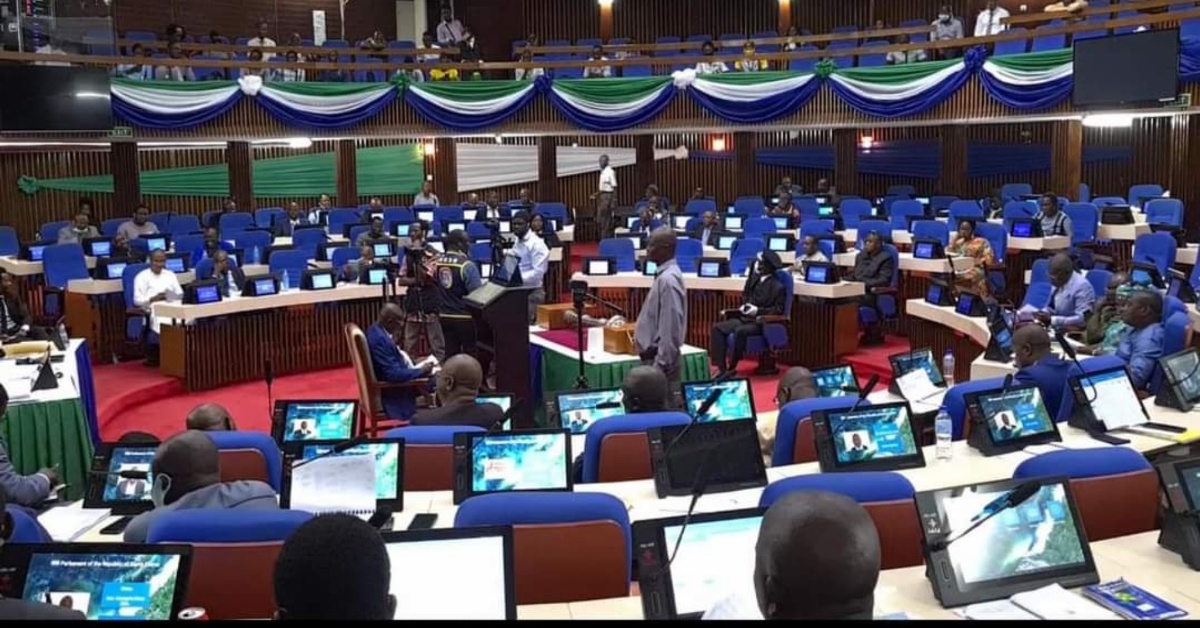The recent removal of Sierra Leone’s Auditor-General, Lara Taylor-Pearce, and her Deputy, Tamba Momoh, by Parliament has sent shockwaves throughout the nation and beyond.
This decision, marked by procedural controversies, political overreach, and allegations of bad faith, has been condemned as a profound attack on the principles of transparency, accountability, and democratic governance.
Lara Taylor-Pearce has been celebrated as a guardian of public accountability, fearlessly exposing corruption and safeguarding Sierra Leone’s financial integrity. Her unceremonious removal is widely perceived as a politically motivated act aimed at silencing dissent and protecting those in power from scrutiny.
Parliament’s vote to dismiss Taylor-Pearce and Momoh was preceded by a message from alleged President Julius Maada Bio, urging members to act on the recommendations of a Tribunal report that alleged professional misconduct. However, critics have pointed out significant flaws in both the report and the parliamentary proceedings.
Opposition Leader Hon. Abdul Kargbo described the process as rushed and unfair, accusing the government of deliberately sidelining opposition MPs to manipulate the outcome. “Most of our MPs are out of the country, and it will be unfair to vote now on this matter,” Kargbo lamented, highlighting a pattern of “surreptitious arrangements” that ensured the ruling party’s numerical advantage.
Further controversy arose when Speaker Solomon Segepoh Thomas ruled that the two-thirds majority required for the decision would be based on the number of MPs present, rather than the total number of parliamentarians. This unprecedented interpretation of parliamentary standing orders has been criticized as a calculated move to undermine democratic norms and rubber-stamp the government’s agenda.
The removal of the Auditor-General and her deputy is emblematic of a broader erosion of institutional independence in Sierra Leone. Taylor-Pearce’s tenure was marked by her willingness to expose corruption, including scandals involving the President’s office. Her suspension and subsequent dismissal send a chilling message to public servants and oversight bodies: those who challenge the powerful will face retribution.
This alarming precedent undermines the integrity of Sierra Leone’s governance framework. Institutions tasked with upholding accountability and transparency are now at risk of being reduced to tools of political expediency. This is not just a setback for Taylor-Pearce and Momoh but a direct assault on the public trust in Sierra Leone’s democracy.
The implications of this decision extend far beyond the immediate political crisis. By disregarding procedural norms and exploiting loopholes, the government has set a dangerous precedent that weakens the checks and balances essential to any democracy.
Opposition MPs and civil society groups have rightly warned that this episode could embolden future administrations to act with impunity. Hon. Kargbo cautioned that the removal of the Auditor-General “defeats the purpose of the President’s rejection of the 2020 Finance Bill,” which ostensibly aimed to prevent the misuse of public funds. Instead of strengthening accountability, this move signals a retreat from transparency and good governance.
The international community must take a stand against this brazen subversion of democratic principles. Sierra Leone’s fragile democracy cannot withstand further erosion of its oversight mechanisms. The silence of global actors in the face of such blatant irregularities risks emboldening authoritarian tendencies and undermining the country’s progress.
International organizations, donor nations, and advocacy groups must urgently condemn this travesty. Their inaction would signal complicity in the dismantling of Sierra Leone’s democratic institutions. Moreover, it is imperative to address the broader concerns surrounding President Bio’s governance, including allegations of electoral malpractice and judicial corruption.
The removal of Lara Taylor-Pearce and Tamba Momoh marks a dark day in Sierra Leone’s history. It is a reminder that democracy is fragile and must be actively defended against those who seek to exploit it for personal and political gain.
Sierra Leoneans must unite in their demand for accountability, transparency, and justice. Civil society organizations, opposition parties, and the media must continue to shine a light on these abuses and mobilize public opinion against the erosion of democratic norms.
The international community, too, has a responsibility to act. A failure to hold President Bio’s administration accountable would not only betray the people of Sierra Leone but also set a dangerous example for other nations.
The stakes could not be higher. The removal of Sierra Leone’s Auditor-General is not just a blow to one individual but a threat to the principles that underpin the nation’s democracy. In the face of this crisis, silence is not an option. The world must stand with the people of Sierra Leone in their fight to preserve their democratic future.











